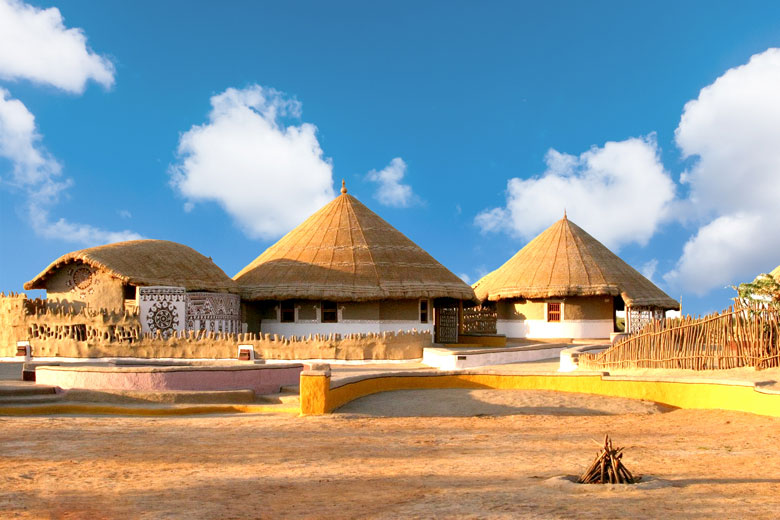Must know information about Gujarat tourism, Gujarat is one of the richest states in India, both economically and culturally. The arts flourish in its cities, and partisanship thrives in its villages. At the Gir Wildlife Sanctuary, the last prides of Asiatic lions are growing in number, and at Dhola Vira, the spectacular remains of a 4,000-year-old Indus Valley city have only recently been excavated. The Hindu Solanki dynasty produced a flowering of architecture late in the classical period, and some of the earliest Muslim kingdoms in India were founded here a few centuries later. The cross-fertilization of Hindu and Muslim cultures is as pronounced, and successful, in Gujarat as anywhere in the country. Previous neglect of tourism delivers a bonus to travelers now in that the hard-sell approach is rare among guides, touts, and taxi drivers. Gujaratis are relatively unfazed by visitors from over the oceans: They themselves are India’s greatest travelers, composing about a quarter of Indian immigrants around the world. Their most famous son, Mahatma Gandhi, began his adult life as an immigrant lawyer in South Africa. After a few days here, you will feel you’ve discovered a hidden gem.
About Gujarat Tourism
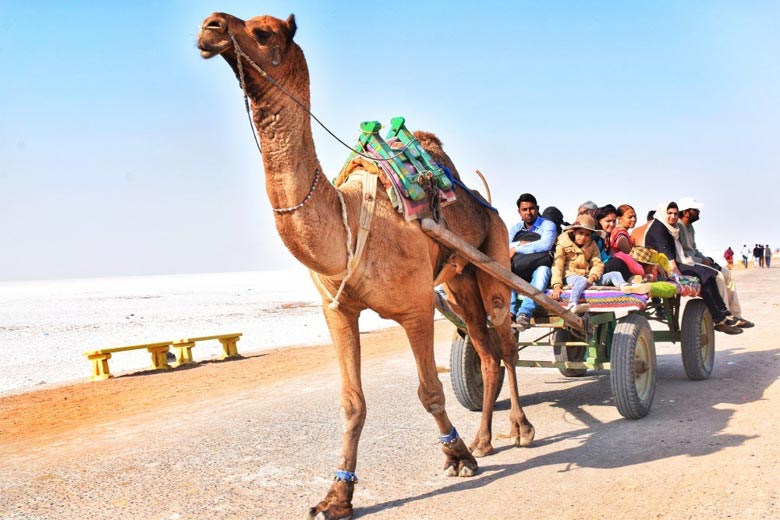
Gujarat Travel
Ahmedabad, the state’s capital, is a remarkable repository of architectural styles: from the early Indo-Saracenic forms of the 15th-century Muslim sultans to the modern forms of Le Corbusier, the contemporary Indian architect Charles Correa, and the American Louis Kahn. The city is congested and hectic, but its wealth of museums, performing-arts centers, and galleries makes it a rewarding stopping point. In Ahmedabad and elsewhere, curious and ornately decorated step-wells, or baolis, plunge fathoms down into the earth to the water table.
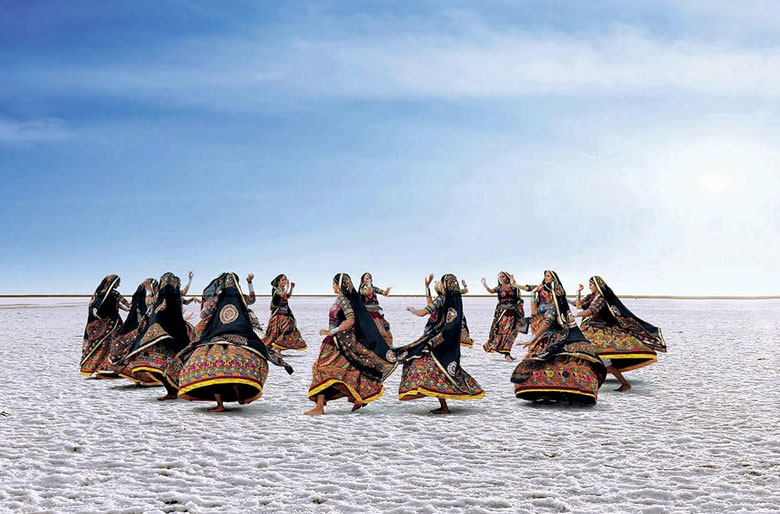
Festivals of Gujarat
Elsewhere in the state, Vadodara (a Sanskrit name commonly anglicized as Baroda), the former headquarters of an important princely state, is a pretty college town with vibrant cultural life. The Kutch region, on the state’s northwestern edge bordering Pakistan, has superb artisans, the remains of an ancient city at Dhola Vira, and miles of pristine, undeveloped beaches on the Arabian Sea.
Book Gujarat holiday packages with Swan Tours at best price.
Southwest of Ahmedabad, the region of Saurashtra has remarkable wildlife preserves, and the palaces of the dozens of princes who ruled here before Independence. Scattered about the state are pilgrimage centers of the Jains, members of an ancient religion that practices strict nonviolence; more Jains live in Gujarat than anywhere else in India.
Must know information about gujarat tourism:-
Beaches
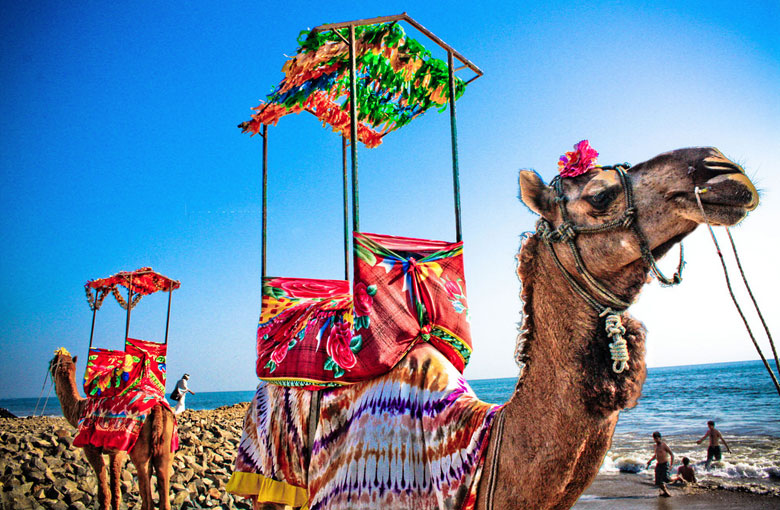
Beaches of Gujarat
The beach in Diu, a former Portuguese enclave just off the coast of Gujarat, is pretty, though it’s no match for India’s best. At Mandvi, in Kutch, the beach is truly beautiful, pristine, and unpopulated, with clear water and a calm surf.
Dining
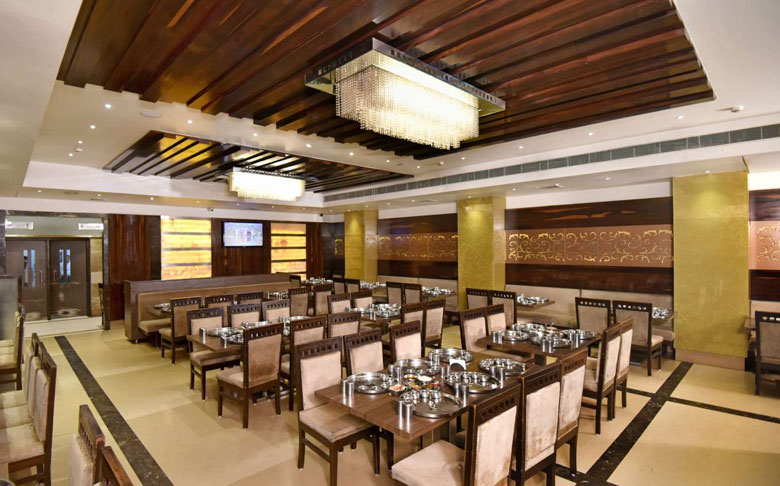
Dining of Gujarat
The rich sauces and meats of North India are foreign here, though many hotels have restaurants featuring classic Mughlai cuisine. Gujaratis prefer a delicious variety of vegetable dishes stir-fried in light vegetable oils, served with unleavened breads—fritters made from bean flours and rice—and washed down with lassi, a cold drink made with yogurt. You can try all of the above by ordering a thali, the traditional sampler platter. Note that Gujarat is a dry state: Alcohol is available only in a few hotel shops, and then only for consumption in your room. Ask your hotel how to obtain a permit from the Excise Department to purchase from these stores. Note also that restaurants tend to close for two or three hours in the late afternoon.
Festivals in Gujarat
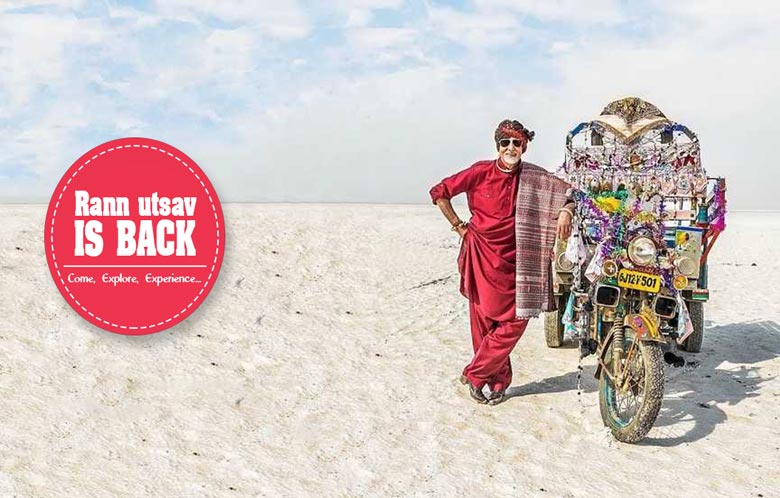
Rann Utsav Gujarat
Makar Sankranti—the point when the sun reaches the Tropic of Capri-corn after the winter solstice—is celebrated on January 14 with a tremendous kite festival in Ahmedabad. A dance festival is organized immediately afterwards at the sun temple at Modhera, about 100 km (62 mi) north of Ahmedabad. The Gujarat tourist board sponsors the Kutch Utsav in February or early March, a cultural festival with crafts fairs, folk dances, and air-conditioned buses to Dhola Vira.
Navaratri, the goddess festival in late September or early October, is celebrated throughout the state with performances of Ras Garba, Gujarat’s folk dance, nowadays often embellished with disco moves and amplified music. Tarnetar, northeast of Rajkot in the center of the Kathiawar Peninsula, is the site of a large folk fair in October or November. Diwali—the November or December festival of lights marking the return of the epic hero Rama from exile with his wife, Sita—is celebrated distinctively here by the Jains, as is the birthday of their ancient founder, Mahavira, in April. When the monsoon rains are good—every fourth or fifth year—the Hindu month of Shravan, in July or Au-gust, brings Kutch to life as nomads return to their villages and the rare season of plenty is celebrated.
Lodging
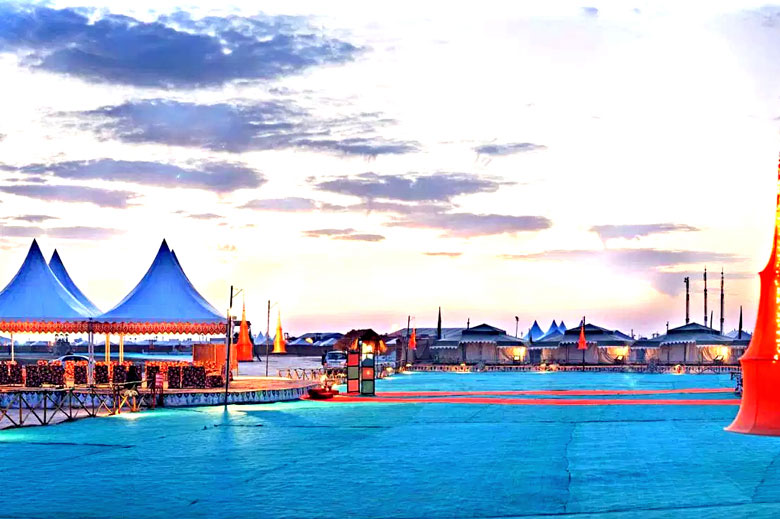
Lodging of Gujarat
Ahmedabad and some other cities have some good business hotels, and in the countryside sonie formerly state-run tourist facilities have been refurbished under private ownership. Several of the modest palaces of former princes are being converted to Heritage Hotels in charming rural locations. Still, accommodations in Gujarat are largely works in progress, particularly in Kutch.
Shopping

Shopping
Gujarat remains a premier design center, and its traditional crafts are nurtured by modern institutions like Ahmedabad’s National Institute of Design. In Kutch, you can admire and buy these crafts in the villages where they’re made; in Ahmedabad, emporia and street markets deliver a wide selection. It is now very difficult to buy pieces made with the mind-boggling detail you see in museums and private collections, but contemporary crafts are still vibrant with color and with charming vernacular design.
Visual Arts and Architecture
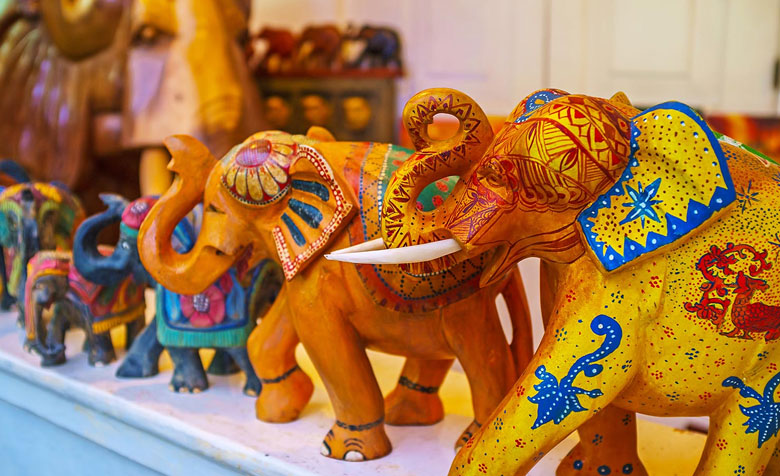
Visual Arts and Architecture
If you visit only one museum in India, make it Ahmedabad’s Calico Museum of Textiles. The displays here will convince you that weaving and embroidery are fine arts. The art school in Vadodara is the best in India, so Ahmedabad and Vadodara both have good collections of Indian sculpture and painting from various periods as well as galleries of contemporary Indian art. Architecture enthusiasts have the rare opportunity to see three buildings by Le Corbusier in Ahmedabad (he built only one in the United States); and the city’s Indian Institute of Management Studies was designed beautifully by Louis Kahn. Ahmedabad’s pre-Mogul Muslim buildings have a lightness and exuberance equal to that of the better-known architecture that followed.
Wildlife
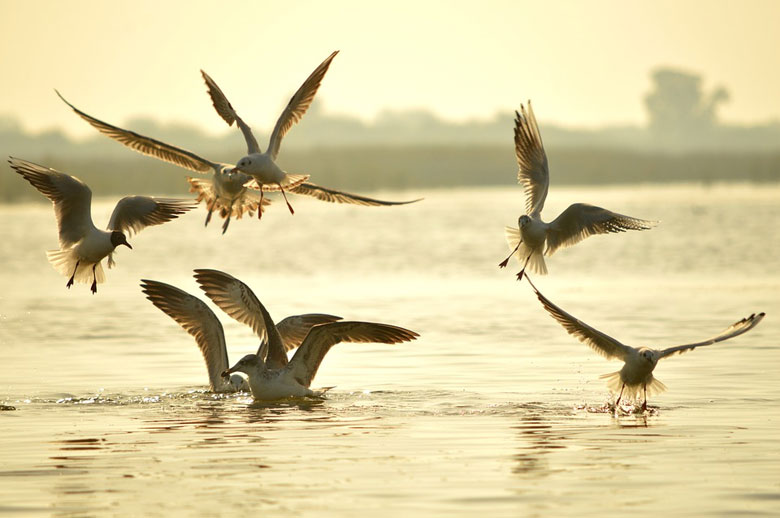
Wildlife in Gujarat
Even if you don’t see lions in the Gir Wildlife Sanctuary, you won’t leave disappointed. Gujarat’s hilly landscape is beautiful in its own right and teeming with deer and other animals, giving a sense of the natural landscape celebrated in Indian art and literature. At Velavadar Wildlife Sanctuary, you’re likely to see great herds of blackbuck, the most graceful Indian antelope, on a large, grassy plain, and in Kutch and at the Nalsarovar Bird Sanctuary in Saurashtra, you’ll see an un-paralleled variety of bird life in the winter months.
For customized Holidays to Gujarat and more details on information about Gujarat tourism contact Swan Tours, one of the leading travel agents in India.
